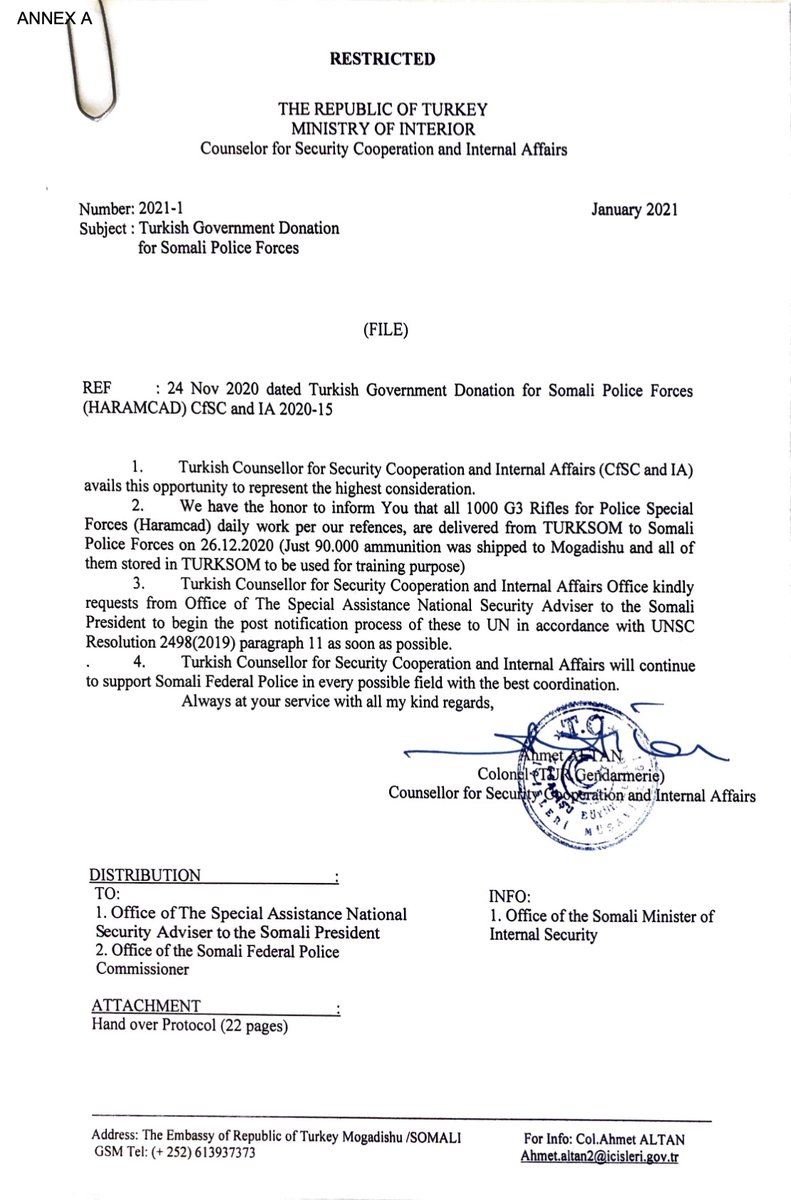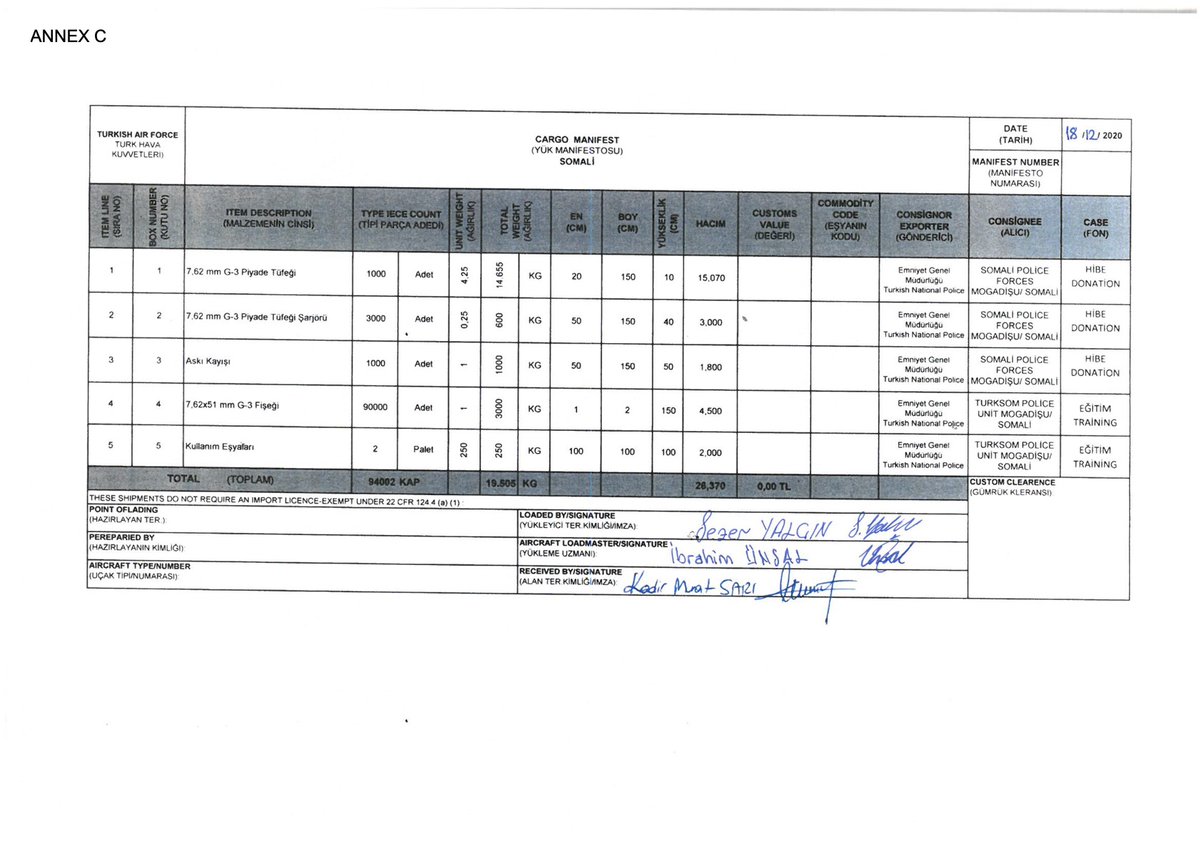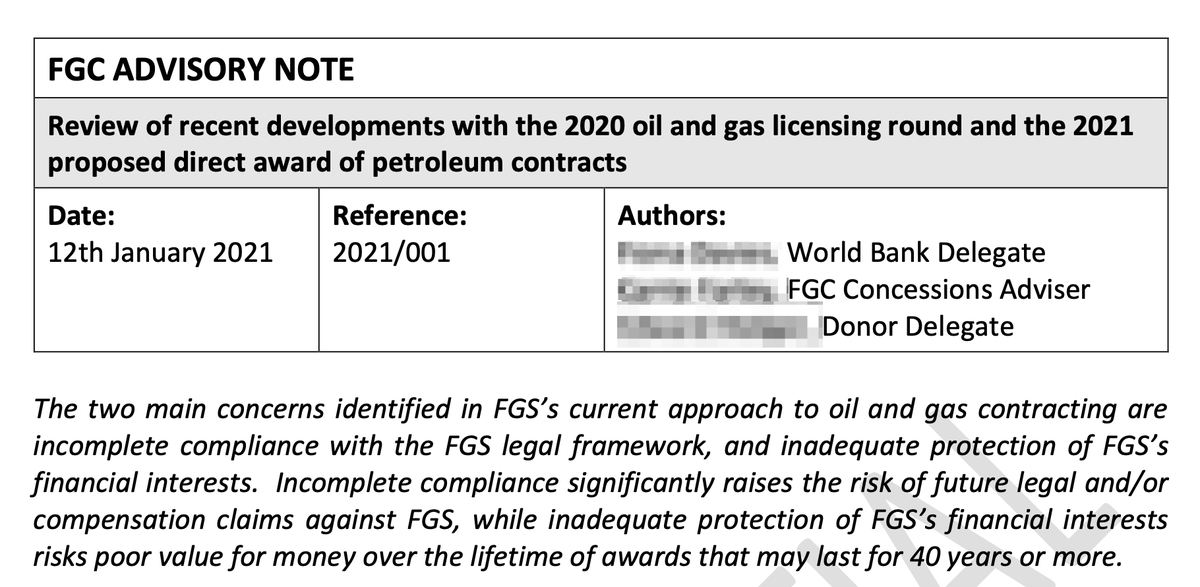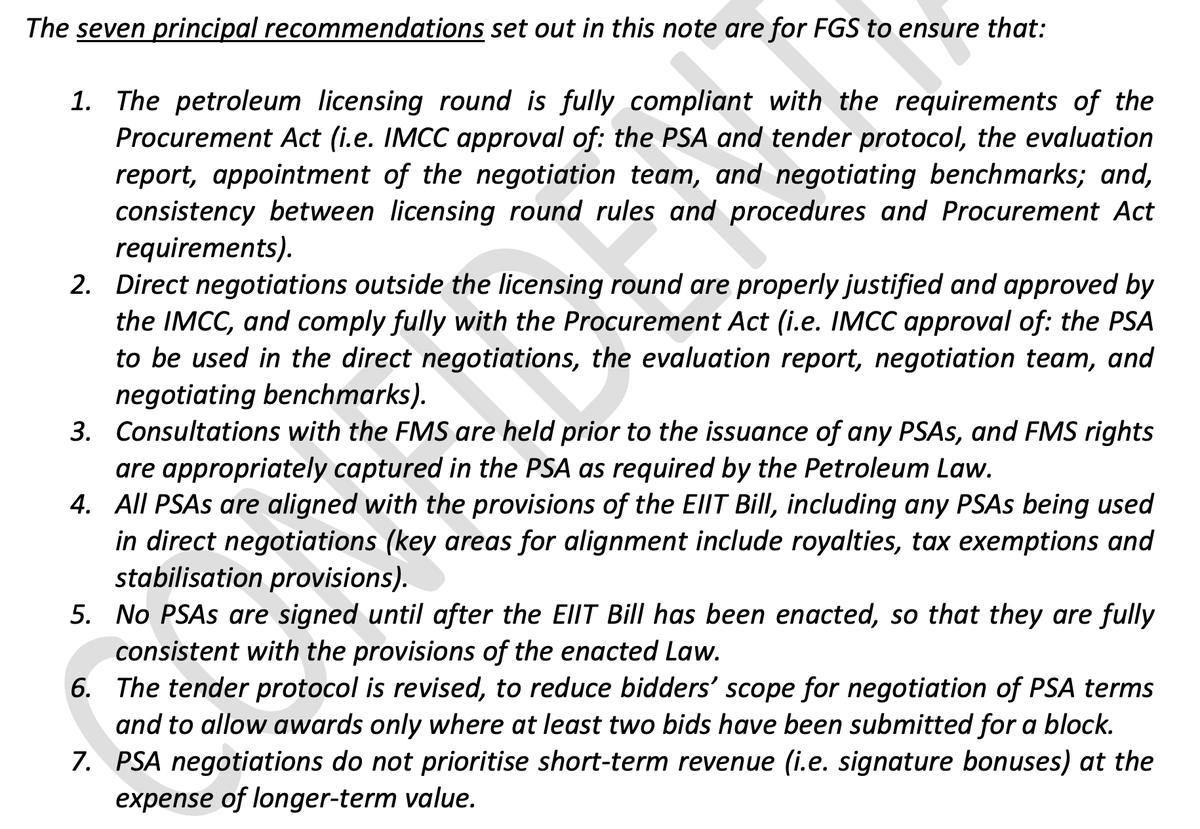
My fourth paper for @GI_TOC has just gone live.
It describes how guns (specifically, Type 56-1 rifles) supplied by #Iran to the #Houthis are turning up all over #Somalia.
Some highlights 👇 (thread)
globalinitiative.net/analysis/iran-…
It describes how guns (specifically, Type 56-1 rifles) supplied by #Iran to the #Houthis are turning up all over #Somalia.
Some highlights 👇 (thread)
globalinitiative.net/analysis/iran-…
@GI_TOC field researchers documented over 400 weapons in illicit markets across #Somalia. Almost 10% of these consisted of Type 56-1 rifles believed to have originated in arms transfers from Iran to the Houthis. 
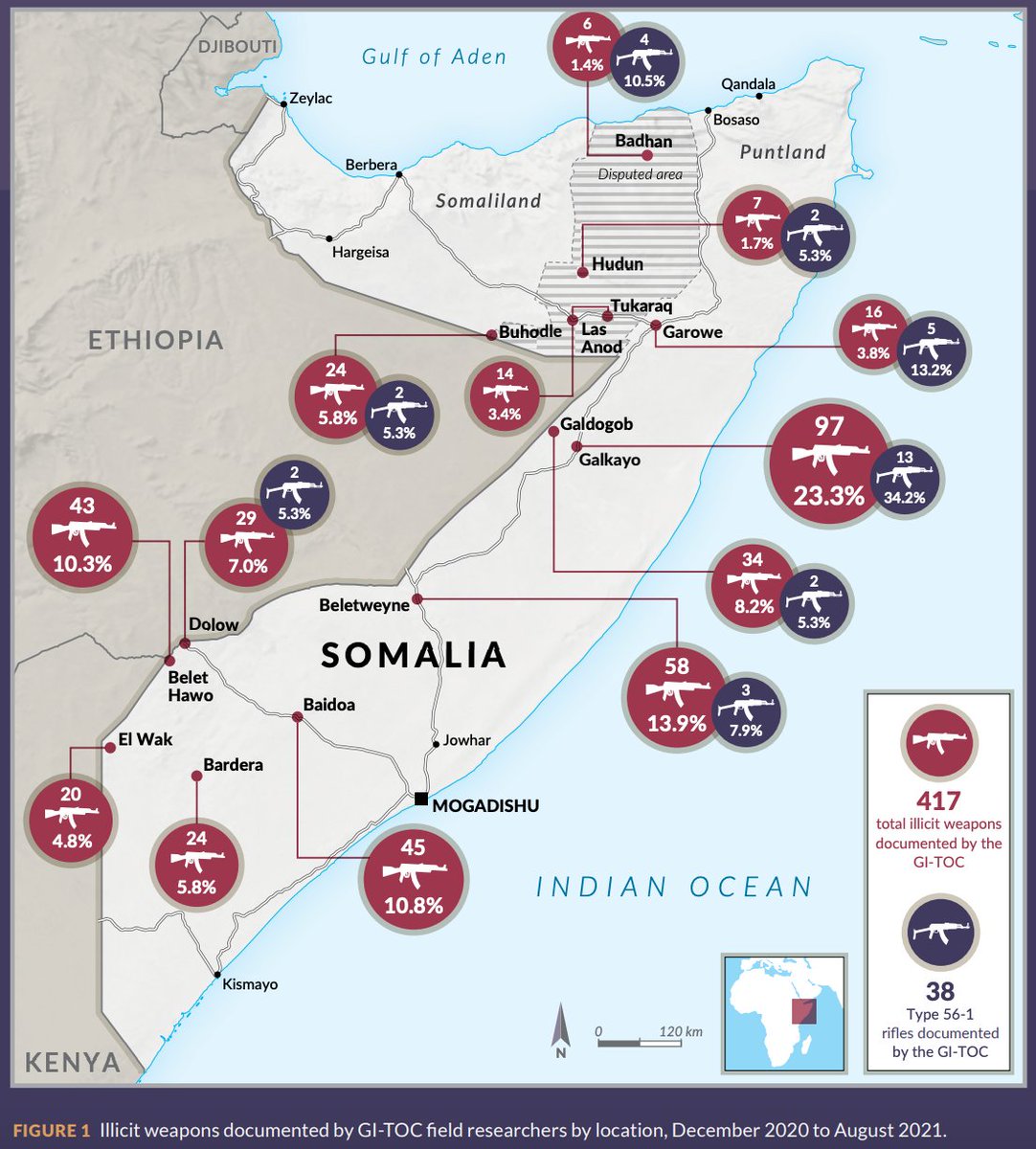
The Type 56-1 rifle is a Chinese-manufactured copy of the Soviet AKMS assault rifle, first produced in 1956.
Since August 2018, thousands of Type 56-1 rifles have been seized during maritime interdictions of arms-trafficking dhows believed to have been supplying the Houthis.
Since August 2018, thousands of Type 56-1 rifles have been seized during maritime interdictions of arms-trafficking dhows believed to have been supplying the Houthis.
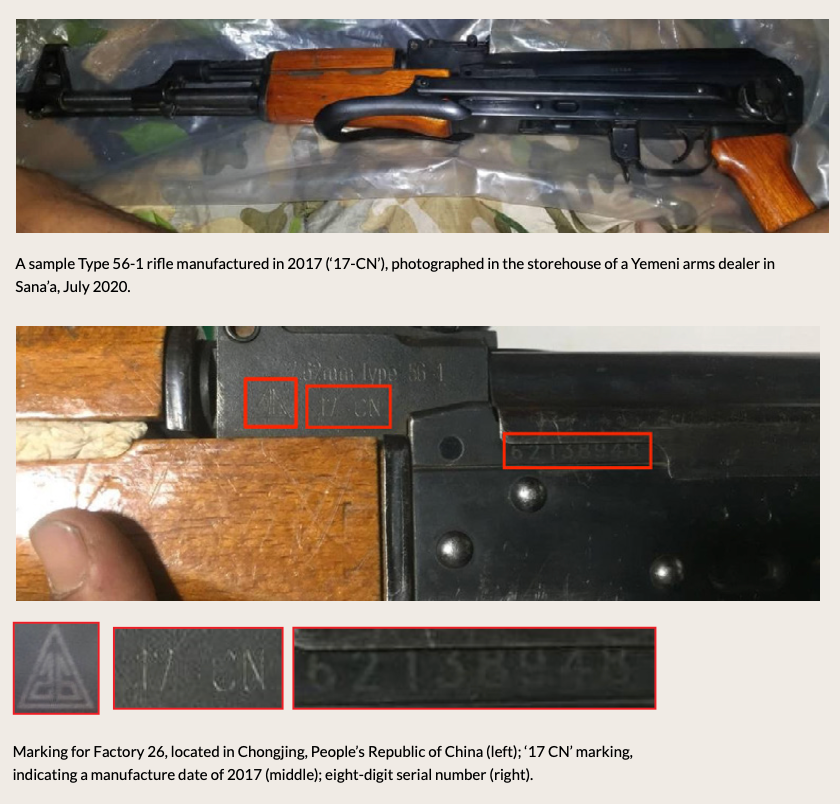
The report cross-referenced serial numbers of Type 56-1 rifles found in Somalia against those of over 5,000 rifles seized in four separate maritime interdictions.
It concludes that most, if not all, of the Somalia rifles shared a common origin, most likely Iranian state stocks.
It concludes that most, if not all, of the Somalia rifles shared a common origin, most likely Iranian state stocks.
Serial number proximity among captured weapons, the use of similar packaging, GPS tracks of seized arms-trafficking dhows, and human intelligence from within smuggling gangs all supported an Iranian origin.
One arms-trafficking dhow seized by the US Navy had a GPS device onboard indicating it had been present at a small anchorage near Jask, which hosts an Iranian naval base. Its "home" was saved as the as the Yemeni port of Mukalla, a well-known arms smuggling hub. 

Iran, of course, is only one party fuelling the conflict in #Yemen. @GI_TOC researchers viewed dozens of G3 rifles that had been trafficked from Yemen, one of which bore #Saudi markings. 

Why do the findings matter?
Access to a plentiful maritime arms pipeline could greatly benefit Al-Shabaab militants in Puntland and Galmudug, and ISIL militants in Puntland.
Access to a plentiful maritime arms pipeline could greatly benefit Al-Shabaab militants in Puntland and Galmudug, and ISIL militants in Puntland.
If in future these militant groups gain access to heavier weaponry available through this pipeline (e.g. machine guns, sniper or anti-materiel rifles, or even ATGMs), it could potentially alter the balance of power with gov't and other armed forces in Somalia.
Second, Type 56-1 rifles derived from the Iran-Yemen supply chain were documented in several towns bordering eastern #Ethiopia and #Kenya. The possible cross-border flow of arms has destabilizing implications, particularly given the ongoing civil crisis in Ethiopia.
Third, political tensions in Somalia over a long-delayed presidential election may drive a higher demand for arms in the south. Such arms flows could fuel political violence, such as we saw in #Mogadishu in April.
To sum up: while traditionally viewed through the lens of the Saudi-Iranian geopolitical rivalry, this report reveals one dynamic of how the #Yemen war has rippled out into the Horn of Africa.
• • •
Missing some Tweet in this thread? You can try to
force a refresh



